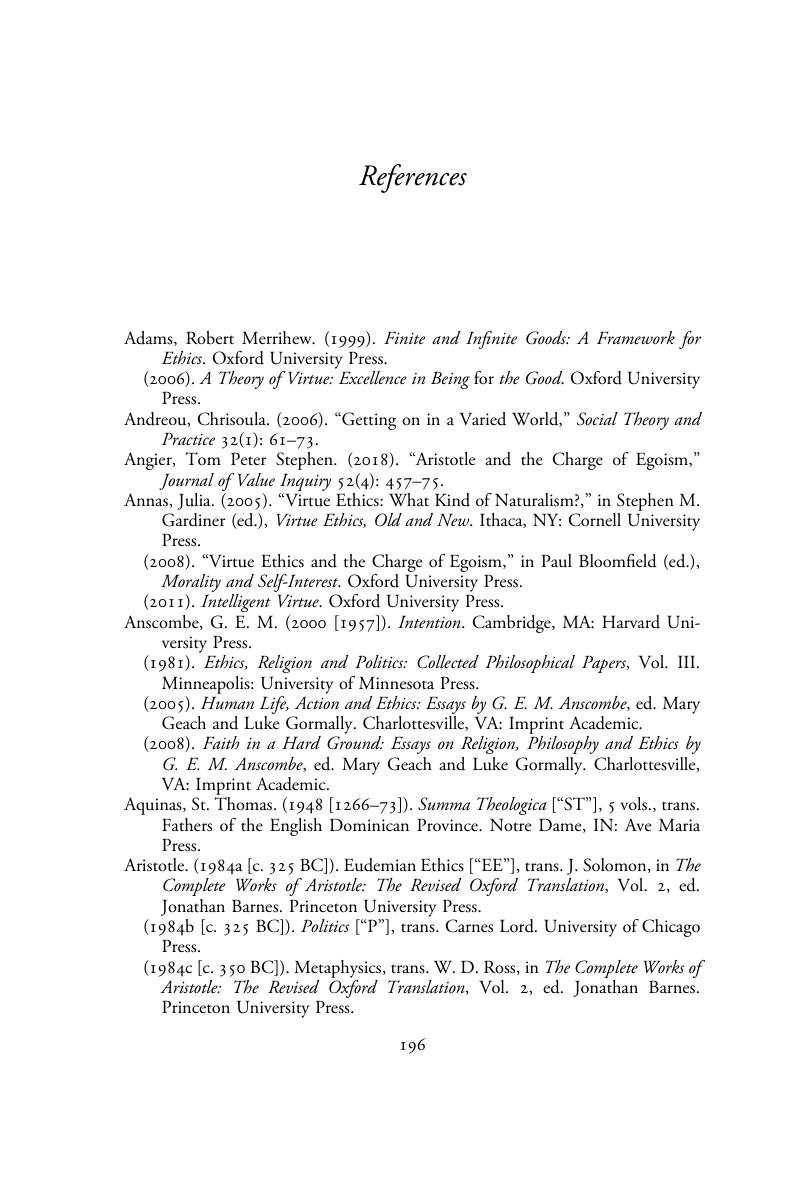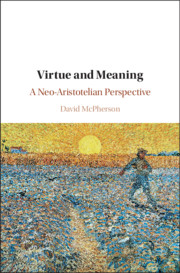Book contents
- Virtue and Meaning
- Virtue and Meaning
- Copyright page
- Dedication
- Contents
- Acknowledgments
- Introduction: Toward Re-Enchantment
- Chapter 1 The Human Form of Life
- Chapter 2 Virtue, Happiness, and Meaning
- Chapter 3 Other-Regarding Concern
- Chapter 4 Cosmic Outlooks
- Chapter 5 Homo Religiosus
- Conclusion
- References
- Index
- References
References
Published online by Cambridge University Press: 09 January 2020
- Virtue and Meaning
- Virtue and Meaning
- Copyright page
- Dedication
- Contents
- Acknowledgments
- Introduction: Toward Re-Enchantment
- Chapter 1 The Human Form of Life
- Chapter 2 Virtue, Happiness, and Meaning
- Chapter 3 Other-Regarding Concern
- Chapter 4 Cosmic Outlooks
- Chapter 5 Homo Religiosus
- Conclusion
- References
- Index
- References
Summary

- Type
- Chapter
- Information
- Virtue and MeaningA Neo-Aristotelian Perspective, pp. 196 - 208Publisher: Cambridge University PressPrint publication year: 2020



